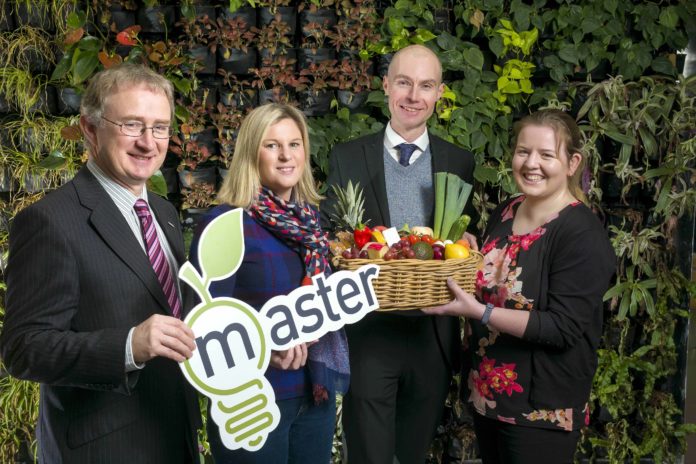
The MASTER project is a Horizon 2020 Innovation Action being coordinated by Dr. Paul Cotter at Teagasc, which has received EU funding of nearly €11 Million. This ambitious research project will be achieved over four years through the involvement of 31 leading European and international academic and industry teams. Participants from 13 EU Member States, 2 Associated Countries and 1 international partner will attend the project launch at Teagasc food research centre, Ashtown, Dublin today, Thursday 17th and tomorrow Friday 18th January.
Speaking at the first meeting of the participants in the MASTER Project, Dr. Paul Cotter, Head of the Food Biosciences Department in Teagasc said; “I am excited to be working with outstanding colleagues from so many different countries. We will harness exciting new microbiome knowledge and apply DNA sequencing technologies to significantly enhance the health and resilience of fish, plants, soil, animals and humans. This will be achieved by adding, or encouraging the growth of, health-promoting microbes and detecting and eliminating spoilage- and disease-causing species. Through applying our cross-sectorial and transdisciplinary expertise, this research will bring these applications closer to market, thereby facilitating capacity building and supporting the creation of new jobs in the food sector and the bioeconomy.”
Microbes have existed for billions of years. They are everywhere, including within us. They provide food, safeguard our health, and shape our bodies. However, it is only during the past 10-15 years that we have begun to gain insights into composition and function of microbial communities (microbiomes) with the development of high throughput DNA sequencing technologies. However, so far very little is known about microbiomes across complex food chains making it difficult to use this technology to develop more sustainable food systems and develop innovative new products.
The overall aim of the MASTER project is to take a global approach to the development of concrete microbiome products, foods/feeds, services, or processes (including microbiology testing) with high commercial potential. Dr. Cotter said; “This will benefit society through improving the quantity, quality and safety of food, across multiple food chains, to include marine, plant, soil, rumen, meat, brewing, fruit and vegetable waste, and fermented foods. This will be achieved through mining microbiome data relating to the food chain, developing big data management tools to identify inter-relations between microbiomes across food chains, and generating close to market products and applications which promote sustainability, circularity and contribute to waste management and climate change mitigation.”
MASTER is an Innovation Action funded by the European Commission under the Horizon 2020 Programme under grant number 818368.









